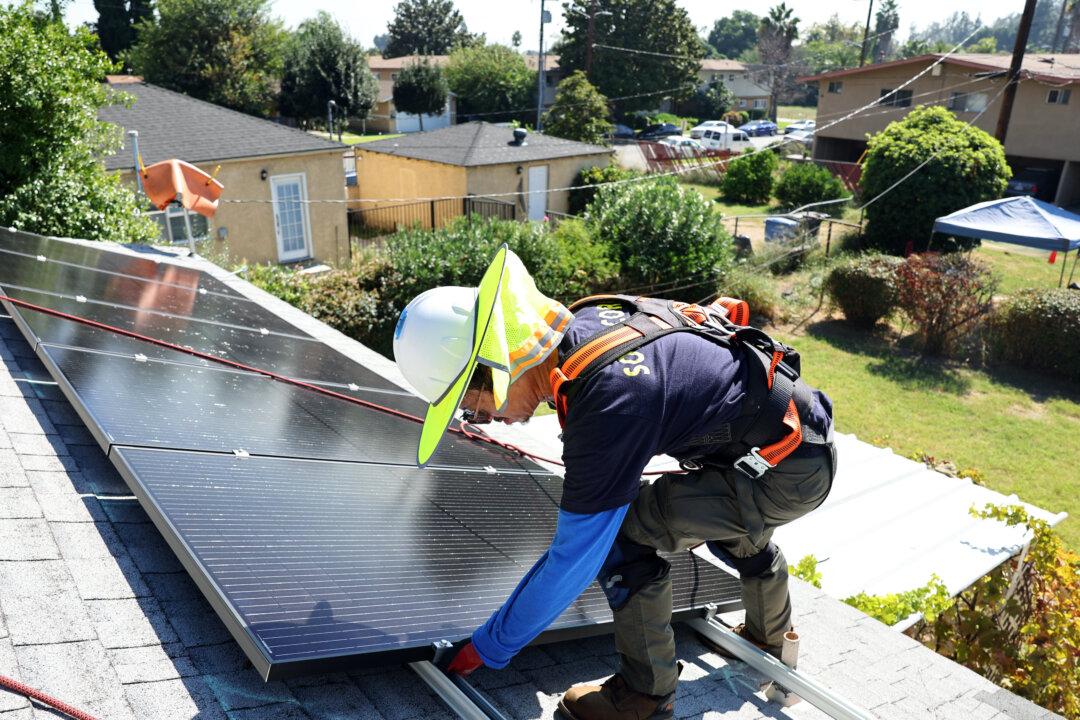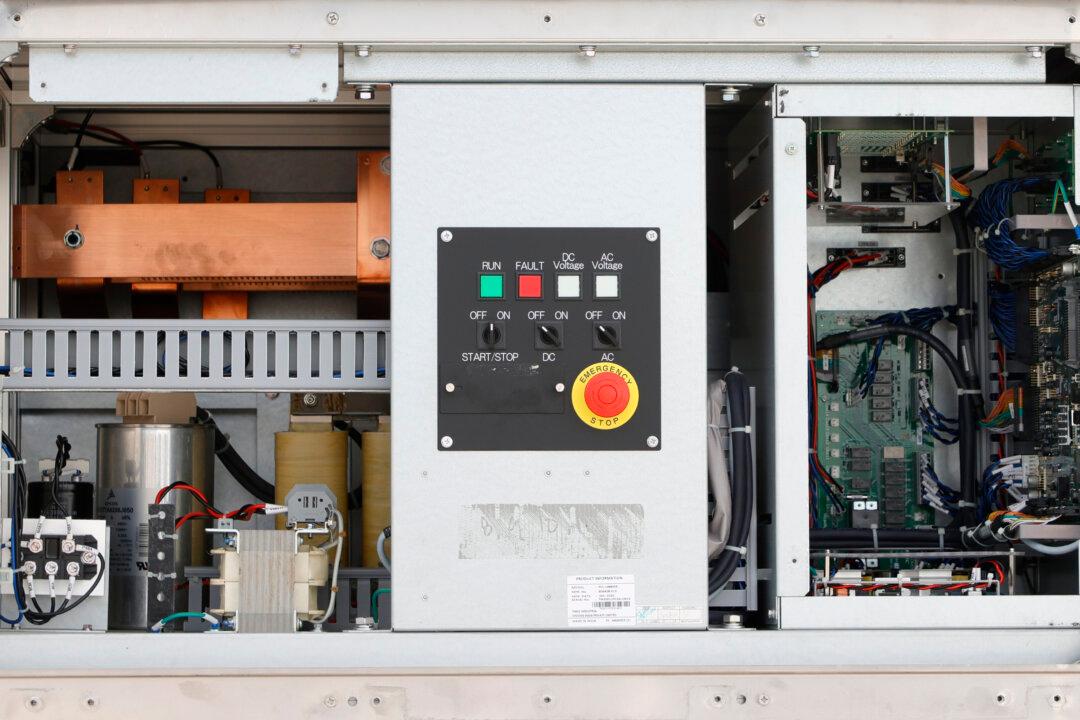The senior chamber’s initial stab at the proposed law, which the House laid on its table, also eliminates or dramatically scales back decades-old corporate wind and solar subsidies that were expanded under the 2022 Inflation Reduction Act.
It pulls the plug on most of the renewable energy subsidies that Trump has labeled “the new green scam.”
“It delivers additional tax relief to middle-class families still recovering from record inflation under the Biden administration,” he said.
“The legislation also achieves significant savings by slashing ‘Green New Deal’ spending and targeting waste, fraud, and abuse in spending programs while preserving and protecting them for the most vulnerable.”
Democrats are expected to fiercely contest the across-the-board “green energy” cuts and are likely to restore some with the aid of dissenting Republicans in the 53–47 GOP-led chamber, before kicking the plan back to the House, where Republicans hold a slim 220–212 majority.
Speaker Rep. Mike Johnson (R-La.) aims to get the budget through Congress and on to the president’s desk by July 4, a tight timeline in narrowly divided chambers that may not be achieved without concessions on both sides of the aisle.
The department’s proposed budget trims spending by 7 percent from this year’s $49.8 billion plan, slashing allocations for non-defense energy programs by 26 percent, including more than $3.7 billion in “green energy” programs next year while pulling the plug on nearly $20 billion in dedicated funding for renewable energy projects through 2032.
The first includes sections terminating tax credits of up to $7,500 for electric vehicle purchases, energy-efficient home improvement credits up to $1,200, and rebates of up to $2,000 for heat pumps and biomass induction stoves.
Those incentives were to expire in 2032, but under the proposed budget, they will end six months after adoption.
While the Senate’s initial plan ended the EV credit within 180 days, the current version ends it on Dec. 31, 2025, but extends the credit through the end of 2026 for automakers that had not already sold or built EVs.
The committee’s spending plan ends tax credits of $2,500 to $5,000 for homes built to Energy Star and Zero Energy Ready standards within a year of the bill’s enactment.
As with the House bill, the Senate measure essentially ends the “rooftop solar” credit for homeowners who install solar panels on rooftops.
Under current law, taxpayers may claim a credit for residential expenditures for solar electric, solar water heating, fuel cell, and small wind energy purchases, as well as geothermal heat pumps and battery storage equipment in service by Dec. 31, 2024.
The value of the credit is 30 percent of the expenditures through Dec. 31, 2032.
Both chambers’ proposed plans terminate the credit 180 days after enactment.
Long-standing wind and solar subsidies that were increased by the Inflation Reduction Act will be phased out more slowly in the Senate’s proposal.
While the House pulls the plug with the president’s signature, under the Senate’s budget, wind and solar companies can still garner the full benefit if they begin planned projects within six months, 60 percent of the benefit if they break ground in 2026, and 20 percent if they initiate in 2027.
Those built from 2028 onward will no longer receive tax benefits.
The Senate plan also preserves tax credits for companies that build nuclear reactors, geothermal plants, hydropower dams, or battery storage through 2033, while the House version trims those tax credits.







